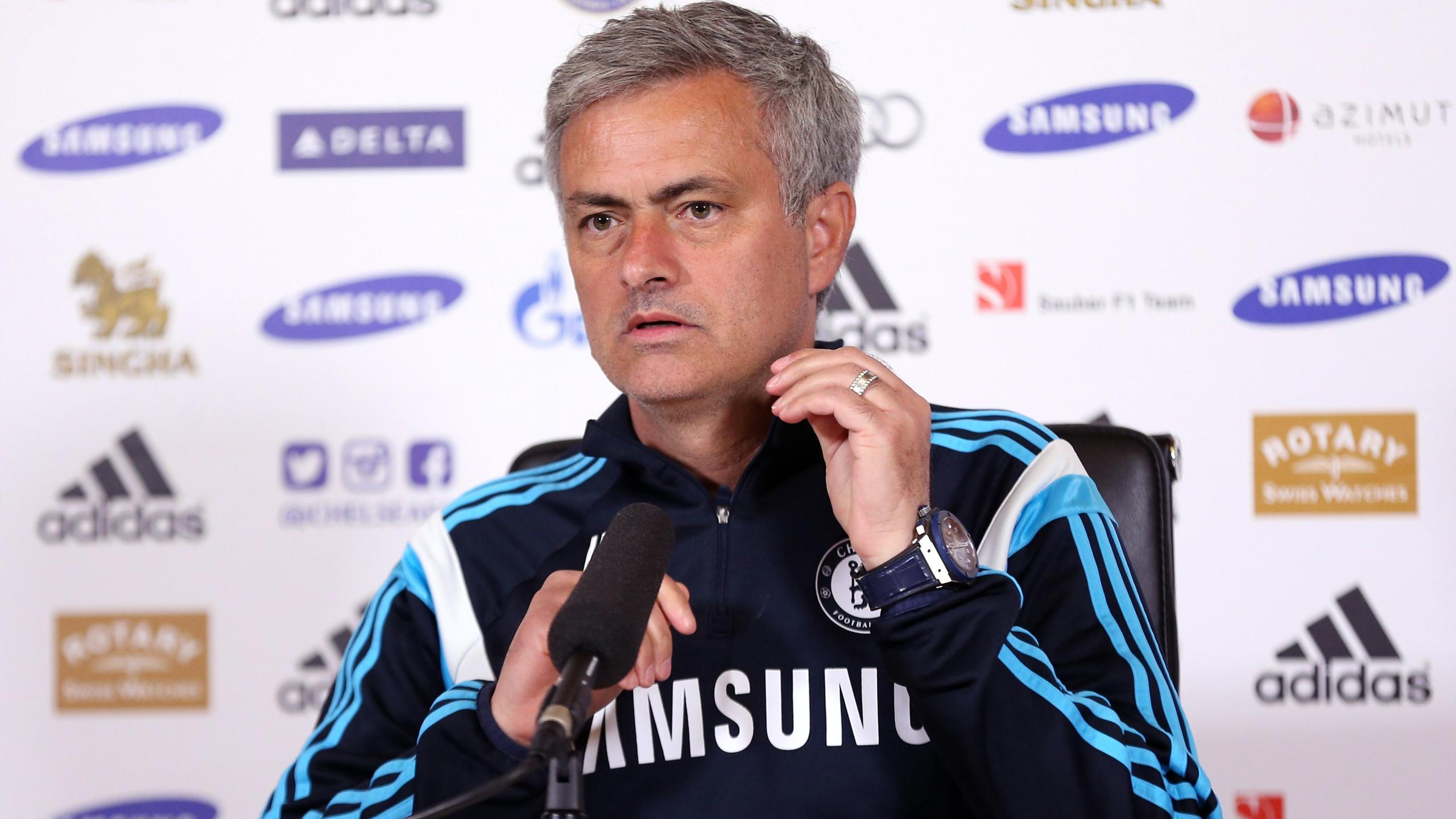Opinion
FootballWhy Pep Guardiola would side with Jose Mourinho in the battle for football's soul
:focal(179x135:181x133)/origin-imgresizer.eurosport.com/2015/03/26/1443595-30868867-310-310.jpg)
Published 07/05/2015 at 20:14 GMT
In the eternal battle of style versus substance, Pep Guardiola and Jose Mourinho are usually presented as polar opposites, the angel and the devil on football’s shoulder; the ideologue and the pragmatist engaged in a battle of wills for the soul of the game.
Eurosport
Image credit: Eurosport
When asked to address accusations that his Chelsea team are responsible for “boring” football, it is Barcelona, their modern incarnation as conceived by Guardiola, which Jose Mourinho is confronted with. When seeking to justify his win-at-all-costs mentality, it is Guardiola’s supposedly more avant-garde and artistic expression of football which is held up as a mirror to his great rival.
If such a comparison can be sustained in the world of coaching, they are the Lionel Messi and Cristiano Ronaldo of management, with prominent traits of their former protégés reflected in the caricatures of the two men: one studious and introverted, the other brash and arrogant.
Their rivalry in La Liga consumed them. It was in these battles between Barcelona and Real Madrid that the conception of Guardiola as the artist and Mourinho as the destroyer was given clarity and allowed to colour perceptions of both men. They have been set up so often in opposition it is easy to forget they are former Barca colleagues who have an education, or part of it, in common.
And when Mourinho unveiled his nightmare vision of a soulless future football being played on the moon yesterday, it was not hard to imagine that while ostensibly discussing Arsenal, he had a picture in his mind of a group of players inspired by Guardiola. After all, it is Bayern Munich and Barcelona who have the most dominant possession stats in Europe at the moment.

He said: “Sometimes I ask myself about the future, and maybe the future of football is a beautiful green, grass carpet without goals. In that beautiful grass pitch, the team with more ball possession wins the game. Everyone speaks about teams playing fantastically well because they 'had great ball possession'. It looks like the goals aren't important."
Warming to the theme of how, for some, attractive football has now begun to supplant winning matches as the primary objective, Mourinho said: "When I am a grandad with grandsons, maybe football will be a game without goals and we’ll just enjoy people passing the ball. Maybe putting the ball in the net is not the objective and stopping the goal from going in your own goal also doesn’t matter. Football started a few centuries ago and the objective was one thing. Now it looks like the objective is another one. I’m very simple with my analysis. Football is about putting the ball in your opponents’ net and keeping it out of your own. When football becomes without goals, you will say it’s boring. You will say bring the goals back.”
To an extent, casting Mourinho as the high prince of anti-football is unfair. Chelsea do have it within themselves to play attractive football and have done so at times this season; they have reverted to type in an attempt to eliminate as much as risk as possible when chasing the title, which seems like an eminently sensible thing to do.
But still, when the question is whether it is more important to entertain and keep the ball or to win and score goals, there is no question which camp Mourinho is in. There is also another distinguished coach who would count himself in that very same camp: Guardiola.
For all that he is held up as the poster boy for lovely football, Guardiola is a man who dislikes ‘sterile domination’ – the term coined by Arsene Wenger to describe possession without penetration. In a biography last year Guardiola explained why tiki-taka’s most famous disciple has no love for the philosophy the phrase portrays.

"I loathe all that passing for the sake of it, all that tiki-taka. It's so much rubbish and has no purpose. You have to pass the ball with a clear intention, with the aim of making it into the opposition's goal. It's not about passing for the sake of it,” he said to his Bayern players. “I hate tiki-taka. Tiki-taka means passing the ball for the sake of it, with no clear intention. And it's pointless.
"Don't believe what people say. Barca didn't do tiki-taka! It's completely made up! Don't believe a word of it! In all team sports, the secret is to overload one side of the pitch so that the opponent must tilt its own defence to cope. You overload on one side and draw them in so that they leave the other side weak.
"And when we've done all that, we attack and score from the other side. That's why you have to pass the ball, but only if you're doing it with a clear intention. It's only to overload the opponent, to draw them in and then to hit them with the sucker punch. That's what our game needs to be. Nothing to do with tiki-taka."
Goals are the thing. For both men, different as they are, the balance between scoring and conceding is the primary concern. They just use different means to achieve the same end. Where Mourinho often likes to shut matches down and attack when an opening presents itself, Guardiola uses passing to destabilise teams and simultaneously reduce the risk of his team conceding. It's both an offensive and defensive tactic and explains why Bayern have conceded only 13 goals in 30 games this season in the Bundesliga.
And when even the angel on football’s shoulder says that without final product, the process means nothing, it’s clear the dispute over what ultimately means more, entertaining or winning, is already redundant.
Tom Adams - @tomEurosport
Scan me
Related Topics
Share this article
Advertisement
Advertisement